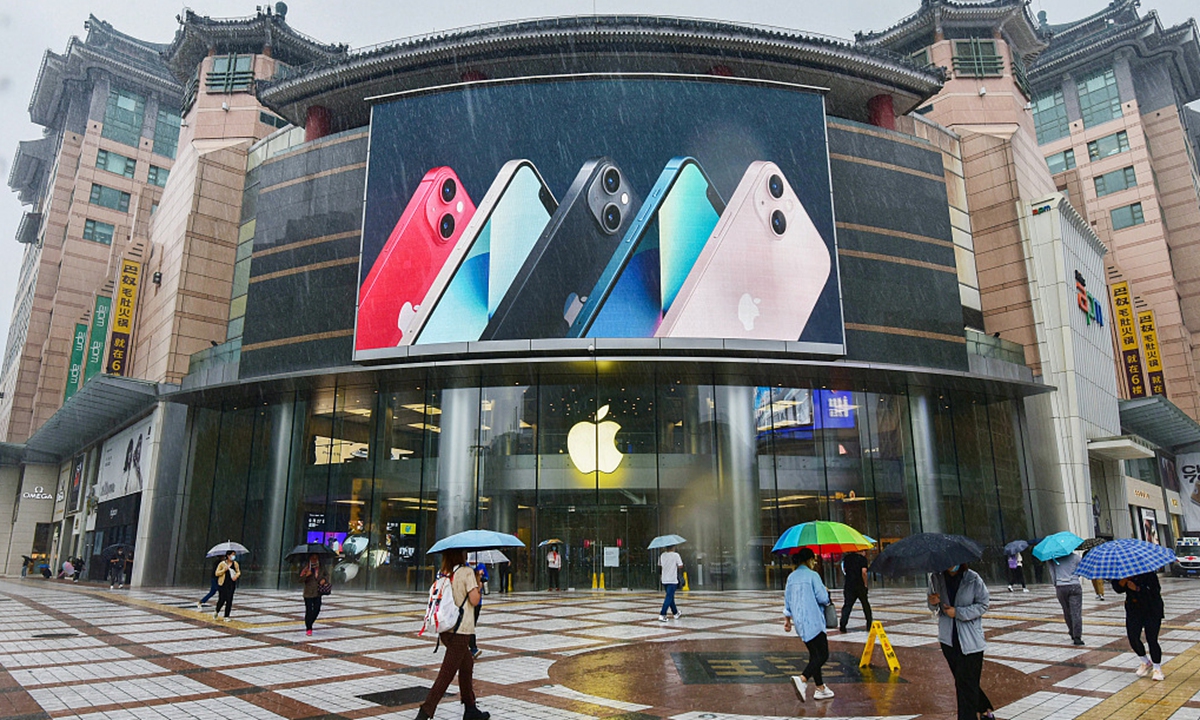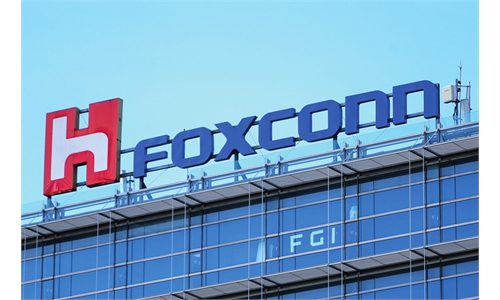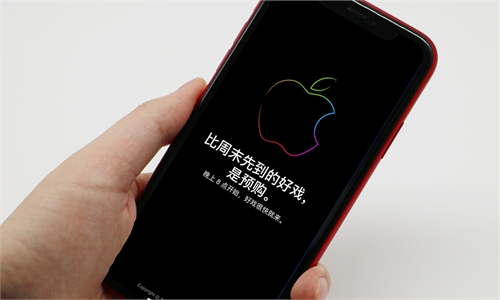Apple’s production lines in China disrupted amid tight raw material supplies: insiders

On September 24, 2021, people walk past an apple store in Wangfujing, Beijing, with iPhone 13 series advertisement on a big screen. Photo: CFP
Several factories of Foxconn, Apple's major original equipment manufacturer (OEM) in the Chinese mainland, have abruptly suspended most recruiting efforts as production lines are disrupted by tight chip supplies and other raw materials, which could affect shipments of the new iPhone 13 series, industry insiders said on Wednesday.
The persistent chip shortage faced by the technology industry is affecting the production of some new products of Apple. Due to the shortage, Apple expects to cut the production of the iPhone 13 series in 2021 by as much as 10 million units, according to media reports.
Some assembly lines have been dismantled because there were inadequate raw materials, and temporary workers on certain assembly lines are no longer needed, a recruitment manager with Foxconn based in South China's Guangdong Province confirmed to the Global Times on Wednesday.
"Now the one-time bonus for workers is 5,100 yuan ($791), but it was 8,000-9,000 yuan just before the National Day holiday," the manager said. Bonuses were cut because there were fewer orders, as foreign raw materials cannot be shipped, which in turn reduces the shipments of Apple products.
"This is indeed not the good time to enter Foxconn," he said.
Another person close to Foxconn's recruitment efforts said that some temporary workers are being told not to come to work.
This came after months-long mass recruitment campaigns by Foxconn with several rounds of bonus raises to draw as many workers as possible ahead of the launch of the iPhone 13 in September, industry insiders told the Global Times in previous reports.
Ma Jihua, a veteran industry analyst, told the Global Times on Wednesday that this is an industry phenomenon that Apple is part of.
"The annual plans of many manufacturers have been disrupted, and there's no guarantee that the orders would be fulfilled," said Ma.
It is not that iPhone 13s cannot be sold - on the contrary, the market performance has been positive - but Apple is facing hurdles in production and transportation, Ma said.
Apple's ability to deliver new models of mobile phones to customers is already under pressure. The iPhone 13 series went on sale in September, but it takes about a month for Apple's website to receive the order before it can be shipped, media reports.
A market study by Tianfeng Securities predicted that the first batch of iPhone 13 series orders will reach 90 million units in 2021, higher than the 80 million iPhone 12 series in the same period last year.
While the supply chain is difficult to improve because it is a systemic problem, Luffy Lin, chief analyst at Witdisplay, an electronics device consulting platform, told the Global Times that Apple has at least three months of inventory on hand, and it is controlling the pace of shipments so that it can always ship a certain volume every month.
"If production capacity improves, it can just increase its shipment volume," Lin said.



